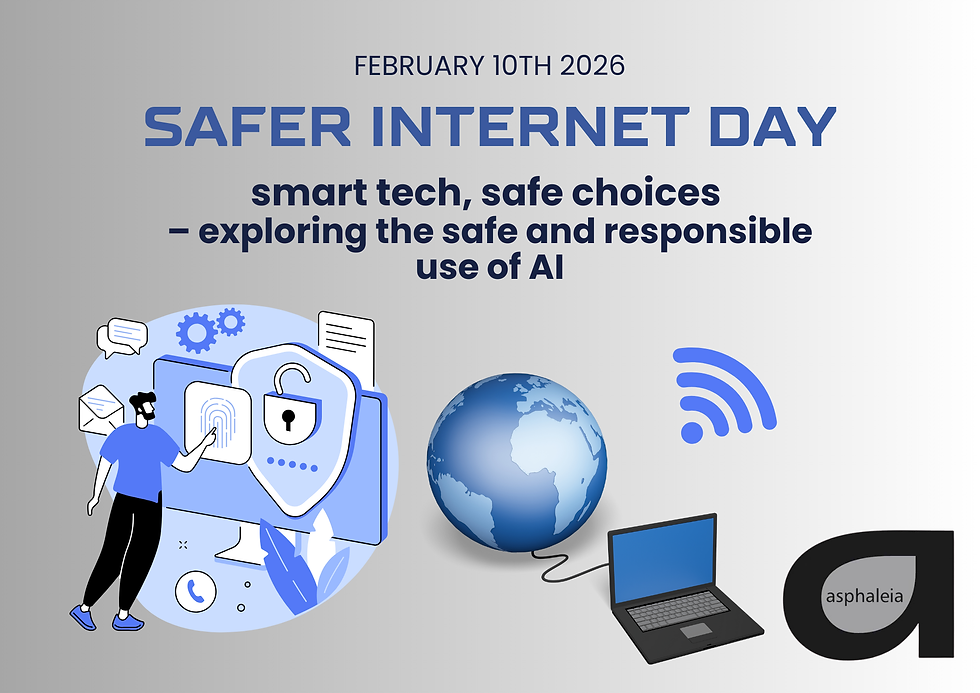sexual abuse and sexual violence week 2022
- Feb 24, 2022
- 3 min read
During the week 7th-13th February, asphaleia took part in the awareness week called Sexual Abuse and Sexual Violence week. The aim of this week is to spread the message that any form of sexual abuse and sexual violence is UNACCEPTABLE and IT’S NOT OK.

definition and facts
Sexual abuse: involves forcing or enticing a child or young person to take part in sexual activities, not necessarily involving violence, whether or not the child is aware of what is happening. The activities may involve physical contact, including assault by penetration (for example rape or oral sex) or non-penetrative acts such as masturbation, kissing, rubbing, and touching outside of clothing.
They may also include non-contact activities, such as involving children in looking at, or in the production of, sexual images, watching sexual activities, encouraging children to behave in sexually inappropriate ways, or grooming a child in preparation for abuse. Sexual abuse can take place online, and technology can be used to facilitate offline abuse.
Sexual abuse is not solely perpetrated by adult males. Women can also commit acts of sexual abuse, as can other children. The sexual abuse of children by other children is a specific safeguarding issue, also known as peer on peer abuse. (Keeping Children Safe in Education, 2021)
1 in 20 children in the UK have been sexually abused. 1 in 3 children who were sexually abused by an adult did not tell anyone. (Radford, L et al (2011) as cited on the NSPCC website)
It is important that anyone working with children and young people are able to identify and respond to concerns of sexual abuse.
who is at risk?
Any child can be at risk from sexual abuse and as mentioned above, a disclosure of the abuse may not be forthcoming. The lack of a disclosure, should not stop you from considering the possibility abuse may be taking place. Some groups of children are at a higher risk to sexual abuse e.g. SEND, children in care and children experiencing other forms of abuse. Identifying sexual abuse in children who do not have the language skills or who have learning difficulties is particularly challenging as the perpetrator may believe they will not have the capacity to speak out.
what can you do?
Create an environment based on equality and informed choices – help young people think about the issues and attitudes behind sexual abuse particularly in relation to gender and other equality concerns
Ensure young people know the risks – talk about sexual abuse in an age appropriate way
Check young people have safe relationships – in their family, with their peers and with professionals. Create the environment where it is ok to talk, even about the most difficult things
Spot the signs and know what to do – consult guides on websites such as the NSPCC that will inform you on how to spot the signs and how to respond
our activities at asphaleia during the week
Our safeguarding team highlighted this specific safeguarding concern to all staff across the organisation and shared resources. The team will also be delivering specific training on it in the coming weeks.
We shared our support for the week on our social media channels and have created signage in our learning centres so students are aware that sexual abuse and harassment is not tolerated and any disclosures are taken very seriously. We have also provided information for who students can speak to if they do not wish to share their experiences with asphaleia staff.







